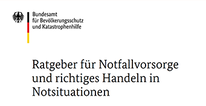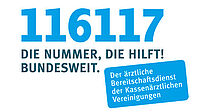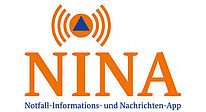Instruction according to § 43 para. 1 Infection Protection Act (IfSG)
Who must be instructed?
Before carrying out an activity in the food sector for the first time, the Office for Health and Consumer Protection requires instruction and certification in accordance with Section 43 (1) of the Infection Protection Act:
1. persons who commercially produce, handle or market the following foodstuffs:
- Meat, poultry meat and products thereof,
- Milk and milk-based products,
- Fish, crustaceans or molluscs and products thereof,
- Egg products,
- Infant and young child food,
- Ice cream and semi-ice cream products,
- Baked goods with fillings or toppings that are not baked or heated through,
- Delicatessen, raw vegetable and potato salads, marinades, mayonnaises, other emulsified sauces, nutritional yeasts,
- shoots and sprouts for raw consumption and seeds for the preparation of raw consumption,
and come into contact with them directly (by hand) or indirectly (through utensils, e.g., dishes, cutlery, and other work materials).
OR
2. persons who work in kitchens of restaurants, cafeterias, cafés or other establishments with or for communal catering.
Why must special precautions be observed?
Pathogens can multiply particularly easily in the foods listed above. Eating food contaminated with pathogens can cause people to become seriously ill from foodborne infections or poisoning. In restaurants or facilities with or for communal catering, this can affect a large number of people. For this reason, a high degree of personal responsibility and observance of hygiene rules must be required of every employee for the protection of the consumer and for his or her own protection. (The most important rules have been compiled in the leaflet "Hygiene rules in community catering" from the Federal Institute for Risk Assessment: www.bfr.bund.de>Publication>Merkblätter>Merkblätter für weitere Berufgruppen).
When may the above-mentioned activities not be carried out?
1. if you show signs of illness (symptoms) which indicate one of the following diseases or which a doctor has diagnosed in you, you are not allowed to work or be employed in this area in accordance with the Infection Protection Act:
- Acute infectious gastroenteritis (sudden onset of contagious diarrhea) caused by salmonella, shigella, campylobacter, rotavirus, norovirus or other diarrheal pathogens,
- cholera,
- Typhoid or paratyphoid fever,
- Hepatitis A or E (liver inflammation),
- Infected wounds or skin diseases where there is a possibility that their pathogens may be transmitted to other people through food.
2. if testing of a stool sample from you has shown evidence of any of the following pathogens:
- Salmonella,
- Shigella,
- Enterohemorrhagic Escherichia coli bacteria (EHEC),
- cholera bacteria
there is a ban on activities or employment in the food sector. The ban on activities or employment also applies if you are exposed to these pathogens without showing signs of illness (see below).
Notice:
The Office of Public Health and Consumer Protection may allow exceptions to the prohibitions under this rule if measures are implemented to prevent transmission of the listed diseases and pathogens.
The following signs of illness indicate the diseases listed:
- Diarrhea (at least 3 unformed stools in 24 hours),
- Nausea, vomiting, or abdominal pain,
- Fever (body temperature >38.5 °C),
- Yellowing of the skin and eyeballs,
- Wounds or open sores from skin diseases if they are red, covered with grease, weeping, or swollen.
Who should be informed?
If you experience one or more of the above signs of illness, be sure to seek the advice of your family or company physician. Also tell him that you work in a food processing plant. In addition, you are obliged to immediately inform your supervisor about the illness.



